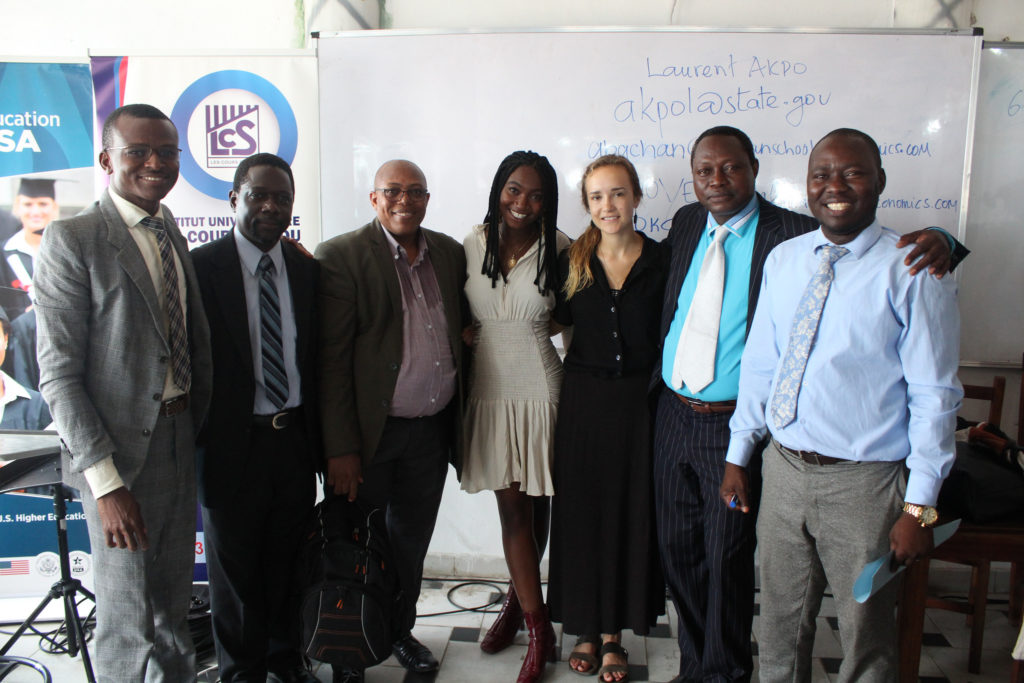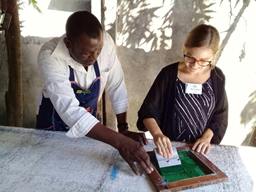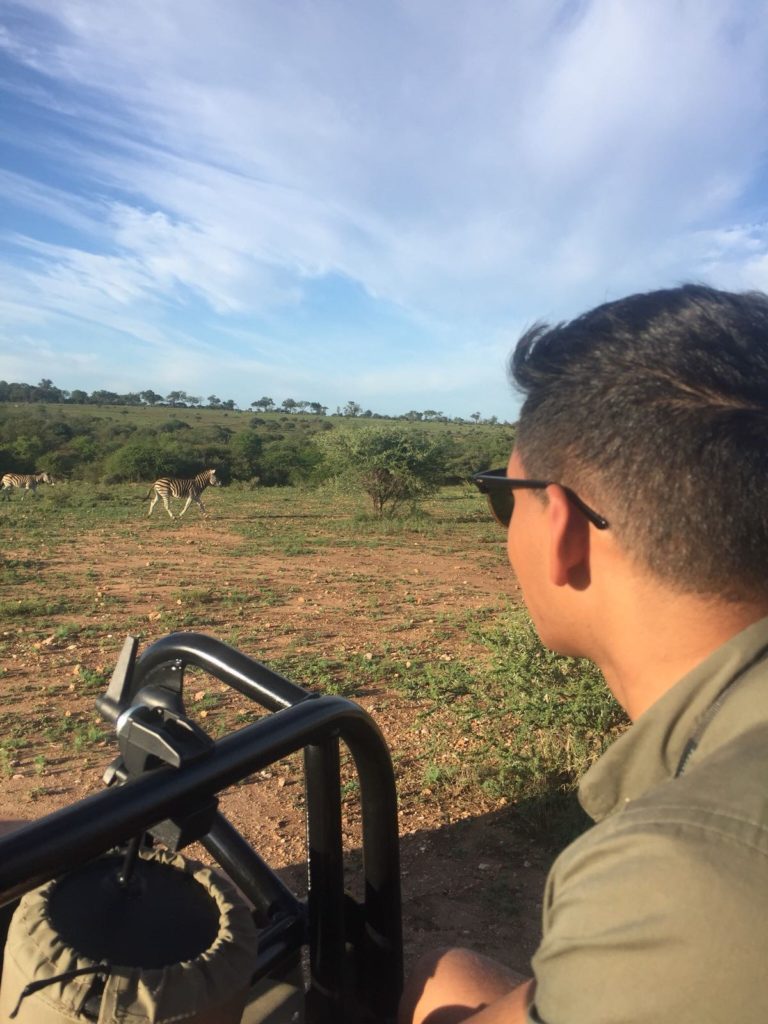July/August 2018
As September approaches, we are gearing up for the 2019-20 fellowship application season. Our application goes live on August 24th, 2018, so if you know any exceptional applicants, please spread the word! We have also been working on some exciting new alumni initiatives such as the formation of an Alumni Board Committee and the Alumni Fundraising Campaign prompted by a generous matching grant pledge of $6000.
Additionally, we have welcomed Reanne Olivier to the team, as our Program Manager. She brings an exciting perspective to the team as the co-founder of Africa Matters Initiative and previous USA Director of Alumni Relations for Stellenbosch University.
On the program end, we have been bidding adieu to our 2017-18 Fellows. Sadly, this will be the last Fellows’ Flyer they are contributing to. Hope you enjoy this edition of the Flyer and the rest of August!
PiAf Connections
Please click below to check out pictures of our Fellows, Alums and other members of the PiAf family meeting up at home and around Africa.
Notes from the Field
By Ìbílọlá Owóyẹlé, 2017-18 Fellow with African School of Economics in Benin

Partnering with US Embassy Cotonou to mentor-advise university students during International Education Week.
For me, moving to Abomey-Calavi, Benin, has felt more like a halfway “homegoing” than a huge personal shift. My experience with ASE, as well as my time in Benin, has reinforced within me the importance of solidarity and reminded me of the necessity of bridging the gap between home and the diaspora abroad.
ASE is a graduate university institution dedicated to providing young African leaders a space and opportunity to gain a first-class graduate education on the continent, as opposed to having to go abroad for new, cutting-edge teaching and learning methods. This “For Us, By Us” ideology, permeates every element of the school and has played a large role in the way I have experienced life in Benin, and in the institution.
At ASE, I have been blessed to experience the luxury of feeling as though I am an important part of something far larger than myself. I have had the opportunity to wear numerous hats, including Research Assistant, Assistant Director, and Project Manager for a game-changing Development Research Lab project aimed at increasing the financial literacy of low-income Beninese persons. All of these positions have strengthened my belief in the need for African-led initiatives to address local and regional issues. I am proud to have worked at an institution that focuses on equipping leaders with information and skills necessary to make long-lasting changes in their societies. I know that I will leave Benin with a refreshed dedication to empowerment and humility in my work. ASE’s focus on local leaders for local solutions has further facilitated my “home-going” by giving me the opportunity to work with and learn from smart, driven African academics and leaders, deeply rooting me in my local and academic community.
Finally, living in a community that is so similar and yet so different from my own has been especially eye-opening, and has played the largest role in my halfway homegoing. In Benin, I have had the opportunity to reconnect with family that I have not seen since first moving to the US. Connecting to each other based on our Yoruba roots, while observing differences stemming from our regional diversity has been lovely and has made me more appreciative of being a part of a culture that is so beautifully and individually expressed across the globe. As I wind down my fellowship at ASE, I am appreciative of the personal and professional growth my experience has granted me.
Notes from the Field
By Joelle Boxer, 2017-18 Fellow with Comprehensive Community Based Rehabilitation in Tanzania (CCBRT) in Tanzania

Joelle with a colleague at CCBRT’s Mabinti Centre, a training program for women recovering from fistula surgery.
As a young, white, American woman living in Dar es Salaam, Tanzania, I often wonder about my place in international development. Having majored in the subject, I am keenly aware of its criticisms: Is development just colonialism in pretty wrapping? Aren’t Tanzanians better suited to work in development than any American? Shouldn’t my Tanzanian colleagues be able to write and win proposals in perfect Swahili, putting me and many other PiAf Fellows out of a job?
While it’s uncomfortable to put on paper, the answer to these questions is often a resounding “Yes.” Or as many of us would prefer, “Yes, but it doesn’t have to be.”
Aid programs can work, but they have to be implemented the right away. I see the future of the field as a collaborative exchange between countries. In our increasingly globalized world, there is great potential for international development to be truly international – between nations, not just from one to another.
In this spirit, what does a country like Tanzania have to offer a country like the U.S.? My work at CCBRT – a local Tanzanian healthcare organization focused on disability and maternal health – makes this question easy. Take, for example, one of the most devastating public health crises impacting the U.S. today: the rising rate of women dying during childbirth, up 17% since 1990. In the U.S., more women die of pregnancy-related complications than in any other high-income country, and black women are four times more likely to die than white women.
Some may call it silly to suggest that the U.S. follow the Tanzanian model to address this epidemic. After all, Tanzania has one of the highest maternal death rates in the world. Nevertheless, my colleagues at CCBRT are committed to making motherhood safe in Tanzania. CCBRT runs the country’s largest obstetric fistula program (never heard of fistula? Read up here.). This experience provides quite a few lessons for those of us who believe that no woman should die or develop a disability during childbirth.
How can the U.S. tackle its epidemic of maternal deaths – one that disproportionately impacts women of color – the CCBRT way?
- Provide maternal healthcare free of cost.
- Provide accompanied transport, accommodation, and meals at health facilities free of cost.
- Work within communities to raise awareness of maternal health.
- Work within communities to identify women at high risk for pregnancy complications.
- Train healthcare workers to provide high-quality and inclusive care.
CCBRT’s fistula program doesn’t wait for women to walk through our hospital gates. A network of ambassadors and a national awareness-raising campaign facilitates their referral and free, accompanied transport to our hospital, where they receive free, holistic treatment by highly trained specialists. CCBRT has identified barriers to treatment and implemented a program that addresses each and every one.
My PiAf experience has shown me the immense power of treating health, especially women’s health, as a human right in Tanzania. I’d call it silly to suggest that the U.S. can’t do the same.
Notes from the Field
By Ryan Rego, 2017-18 Fellow with Population Services International in South Africa
In the world of HIV prevention and treatment, quick detection of infection and initiation of treatment has emerged as one of the most effective strategies for slowing the epidemic. However, over 20% of South Africans have never been tested for HIV – with a large percentage more not being tested recently, in accordance with government guidelines, established in the past 6 months. Seeing a need for this, PSI recently introduced HIV self-testing throughout Southern Africa. This is an incredible innovation which is sure to transform HIV epidemic.
At PSI, my role involves a substantial amount of work on research – examining routine data, aiding with original research studies, and ensuring that programs have adequate monitoring and evaluation plans in place. This work has offered me unparalleled insight into recent innovations in HIV epidemic control, such as the HIV self-testing – innovations which I would not have been exposed to back home in the UK, or in the US, as the need and legal ability to introduce such innovations is not present.
I have been fortunate enough to work on several research projects evaluating HIV self-testing – looking at various models for promoting the intervention; examining how it impacts other HIV prevention methods, such as voluntary medical male circumcision; and in general, examining the project. Additionally, this opportunity has allowed me the opportunity to travel both within South Africa and to neighboring countries where I’ve been afforded the incredible opportunity to see HIV self-testing in action in a variety of settings.
The knowledge and experience which I’ve gained related to HIV self-testing, and similar novel interventions, such as population segmentation and methods to deliver HIV prophylaxis, are experiences which I would have never gotten back home. While I’m returning to the UK for further study at the end of my time in South Africa, the knowledge and skills I gained here are still proving to be invaluable – both of which I am bringing back home with me, to be a better domestic and global public health professional.





